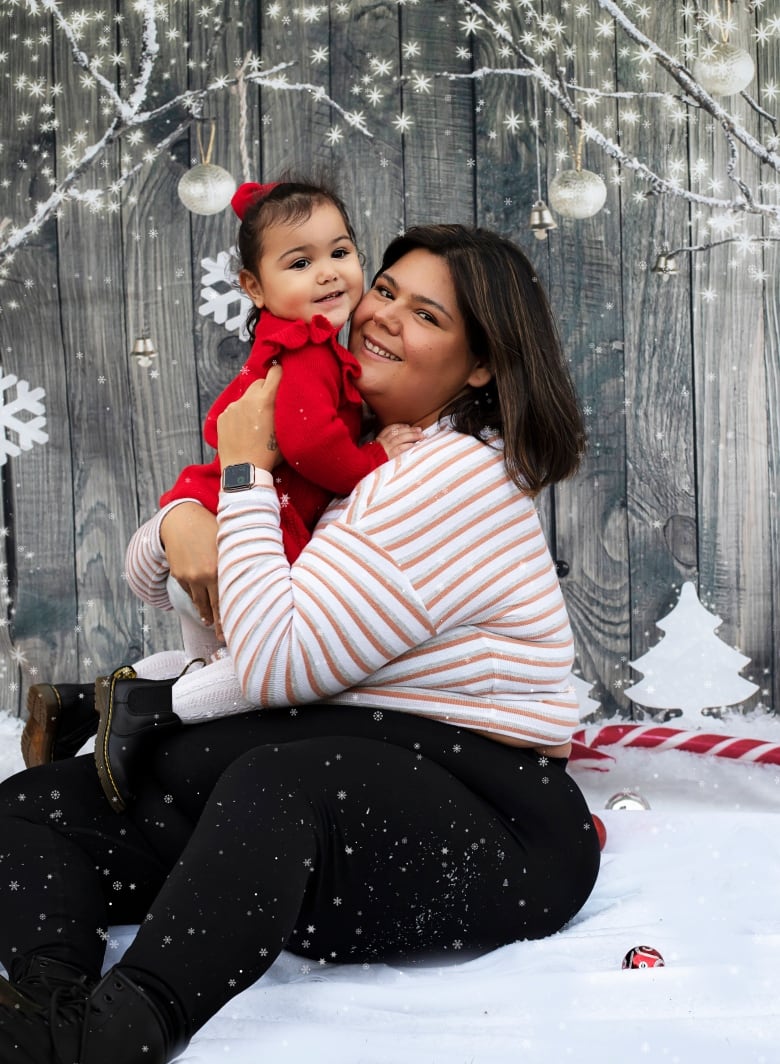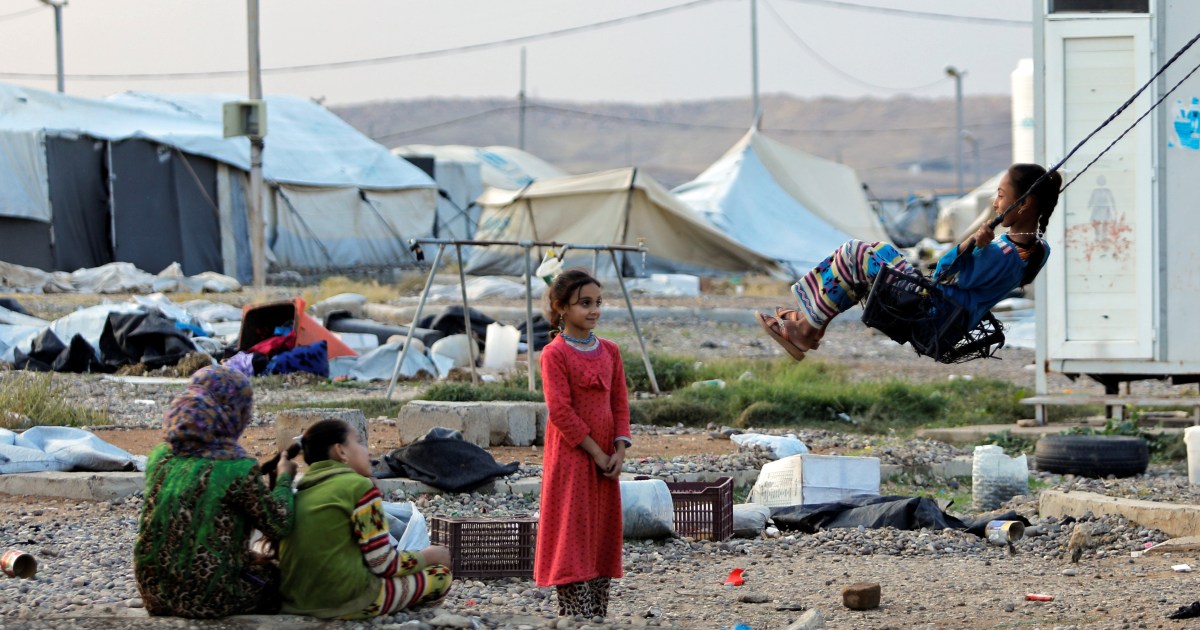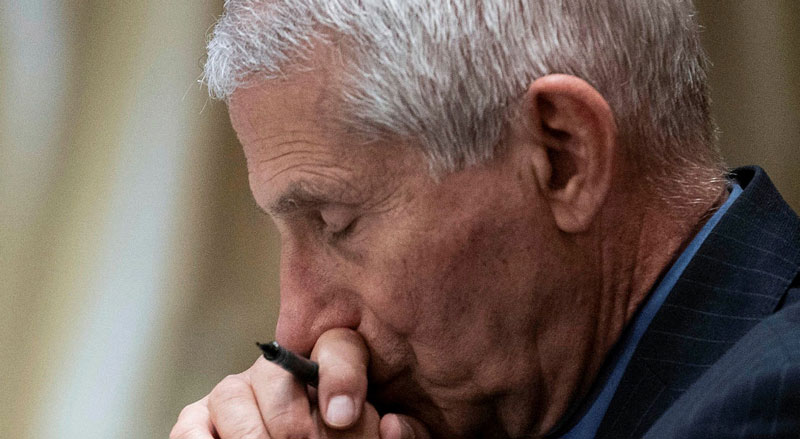First Nations man starts weight loss journey to keep up with his sons
After the birth of this third son, Dallas Pelly was worried about being able to physically keep up with his boys. He decided to make a lifestyle change and committed to eating a better diet and getting fit.
“These guys are my inspiration,” said Pelly, the proud father of three boys aged five, two and three months.
“I want to set a good example for them to live mino-pimatisiwin, a good life. I think that’s holistic, not just physically, but emotionally and spiritually.”
Pelly, 31, is Saulteaux from Cote First Nation, Sask., and lives in Saskatoon.
When his youngest son was born in September, Pelly weighed 450 pounds. He talked to his doctor about weight loss surgery and was told that he was being put on a long wait list.

“Basically [the doctors’] outlook is that if things don’t change, I literally won’t live as long,” he said.
“So, you know, things like hypertension, cardiovascular heart disease, diabetes runs in my family.”
Pelly said the pandemic was also starting to take a toll on his health. He wasn’t eating well, was eating too much, and a lot of his diet consisted of takeout.
“I’ve got three young kids at home and it was just unhealthy,” said Pelly.
In November he decided to commit to exercising and a better diet.
“I remember the first workout I did, I felt like I was going to throw up,” said Pelly.
With the help and support of his wife Shalisse, together they started with simple home exercises that included aerobics and body strengthening routines. He said he has noticed improvements in a short amount of time.
“I’m surprised at what my body can do,” said Pelly.
“There’s things that I’m doing right now that I’m like… I was stretching and I could touch my toes and I can’t remember a time when I could do that. So, yeah, it’s pretty crazy. I’m feeling just a lot, lot better about my body.”
Another priority for Pelly’s progress is getting out for evening walks with his family.
As a way to keep himself accountable, Pelly started an Instagram account, Pellygetsfit, and has been documenting his journey.
He has received hundreds of messages from across the country from people who are not only encouraging him to keep going, but also people inspired to make on their own health and wellness changes.
“I want to be a role model for other Indigenous men and boys who are looking to start their own journey,” he said.
Community support
Alyssa Cross is Kanien’kehá:ka, from Kahnawake, Que., and in January 2019 she became a mom for the first time. Five months later, she made a promise to herself and to her daughter that she would become more active.

After having her daughter, she weighed 450 pounds and said it had taken a toll on her mental health. She started doing home workouts watching YouTube tutorials and started making minor changes to her eating habits.
She said the biggest surprise from her journey has been the support that she has received.
“My family, since Day 1, they were there for me,” said Cross.
“I have my community riding with me. It’s actually an amazing feeling. It gets me a little shook because I honestly didn’t think that my community would have supported me as much as they do.”

Today, she has lost over 135 pounds and has noticed significant changes in her mood.
“My mental health really took a turn when I started accepting myself as I am and not trying to be something that I wasn’t,” said Cross.
Cross and Pelly both say their journeys are not about setting a goal weight, but rather making lifestyle changes and feeling good about themselves.
“My main goal in life is to be healthy,” said Cross.
“It’s to be healthy mentally and physically, to be strong in both aspects. You know, weight-wise it doesn’t really matter the number I want.”
For Pelly, his goal is to physically get to a point where he can hit the powwow trail as a traditional style dancer.
Barriers to wellness
“I think with a lot of Indigenous people, there’s a lot of fat shaming and a lot of people saying ‘You just gotta make the right decision,'” said Pelly.
However, he said there are a lot of barriers when it comes to First Nations health. He said communities often lack affordable healthy food options, or even grocery stores, and that many reserves don’t have recreation facilities where people can exercise.
“It’s not just a simple thing to say ‘move around a little bit and you’ll be healthier,’ I think there’s a lot more to that,” said Pelly.
Joanna Thich, the Diabetes Integration Project dietitian for the First Nations Health and Social Secretariat of Manitoba, said western medicine often looks at health through the lens of the individual, rather than how colonialism and systems have played a role in the health of Indigenous people.
When it comes to getting healthy, Thich said that could mean different things for different people and that people need to figure out what works best for them.
“I think we need to find routines that work for that individual,” said Thich.
“I know there are lots of fad diets out there like generic meal plans, but it’s not a one-size-fits-all approach.”
She recommends that when people take on things like exercise routines or changes to diet, that it’s more of a behavioural change and sustainable in the long term.





